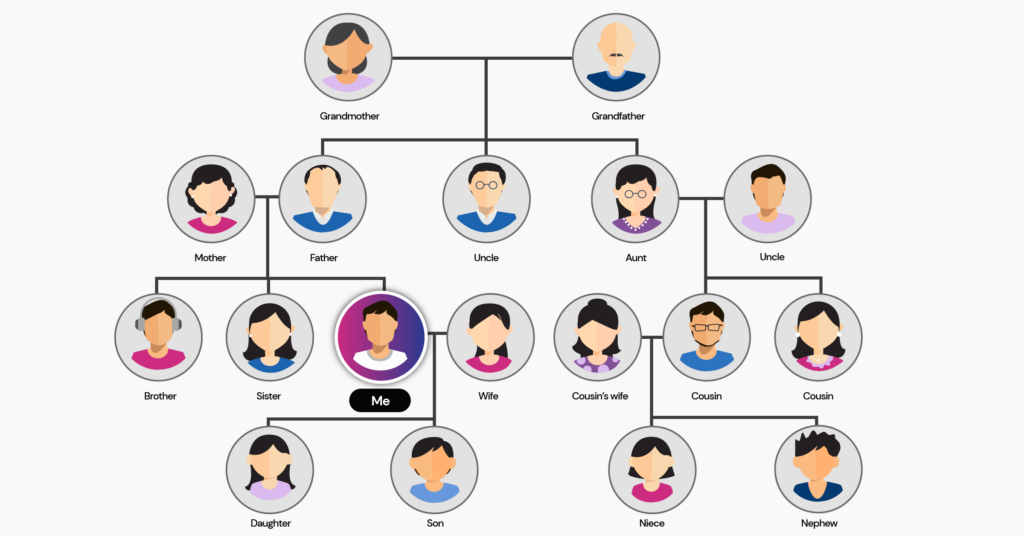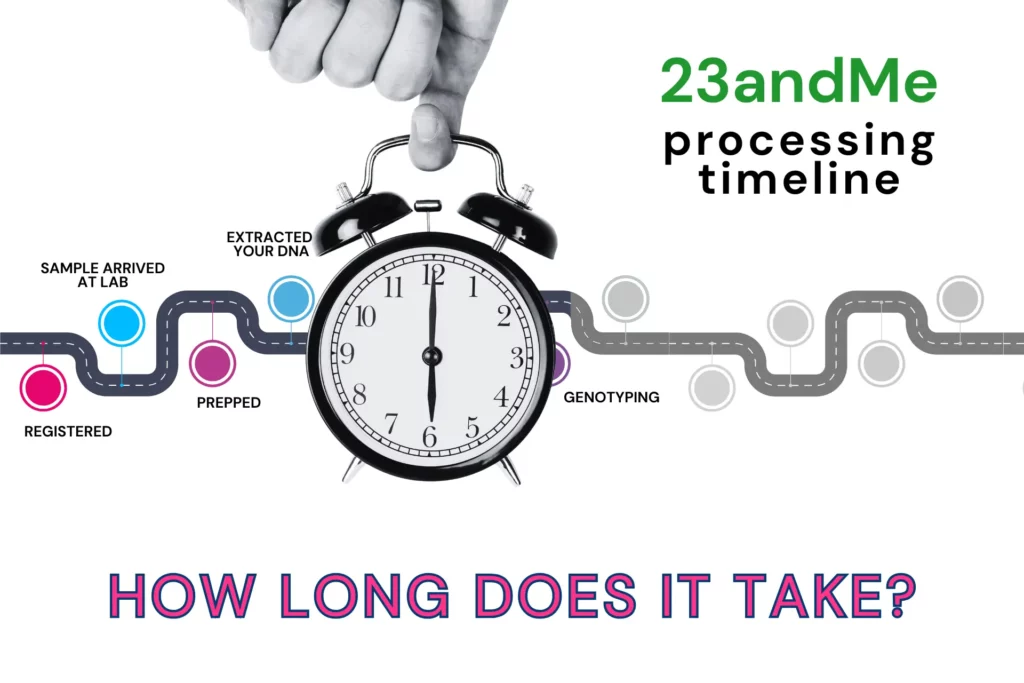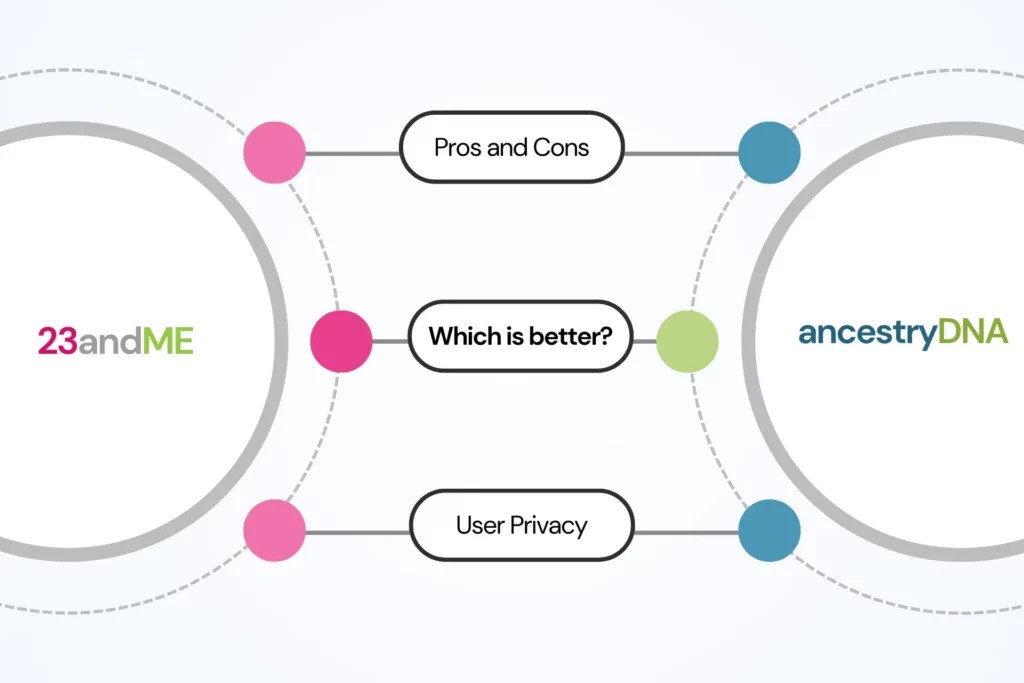Early to bed and early to rise makes a man healthy, wealthy, and wise– a proverb we've heard for years. But what if many people may simply not be programmed to wake up early? Whether you are a morning or evening person depends mainly on your genetics, which governs your circadian system. If it's genetic, can you test for circadian identity with 23andMe? Let’s learn more about circadian rhythm (the body’s sleep-wake cycle) and how it determines your chronotype (when you wake up).
What Is The Circadian Rhythm?
Circadian rhythm is the physical, mental, and behavioral changes an organism undergoes over a 24-hour cycle.
In addition to light and darkness, other factors, such as diet, stress, physical activity, and temperature, influence the circadian rhythm.
Different species have their circadian rhythms.
Did you know that every organ and tissue in the human body has its own circadian rhythm?
Circadian rhythms are essential as they govern different physiological functions in the body:
- Sleep pattern
- Hormone release
- Appetite
- Digestion
- Body temperature
Sleep And Circadian Rhythm: Morning Lark vs. Night Owl
People who start their day earlier and are more active during the day are called 'morning larks'.
Conversely, 'night owls' is the term for those who start their day later and remain active in the latter half of the day.
The circadian rhythm governs the body’s sleep cycle by responding to light changes in the environment.
However, an individual’s preference of being a night owl or a morning lark isn’t entirely in their control.
The reason? It's in their genes!
How Do Genes Influence Circadian Rhythm?
Circadian rhythms are driven by an internal timing system regulated by different genes.
There is a gene network that oscillates within a 24-hour cycle.
In this gene network, clock genes exist that control physiology and behavior.
Is Being A Morning Person In Your DNA?
Your chronotype is coded into your genes.
If you feel like you might be a morning person, it's likely a genetic outcome.
A 2019 study published in Nature identified 351 genetic factors associated with the circadian rhythm.
In addition to the body’s sleep-wake cycle, these genes also influence other aspects of the individual's health, such as mental health, memory, cognitive abilities, and overall health.
Are Some People Just Naturally Nocturnal?
Yes, some people are naturally nocturnal, which means they are biologically programmed to be more active during the night.
These individuals, also called late sleepers, prefer to stay up during the night and wake up later in the morning.
Does 23andMe Test For Circadian Identity?
Here’s how 23andMe determines wake time!
- The research team at 23andMe analyzed 450 places in the DNA associated with the circadian rhythm.
- In addition to genetics, the team also looked at other non-genetic factors like age and sex.
- The company then examines surveys from over 70,000 23andMe research participants of different ethnicities to create a statistical model that predicts the average wake time.
- This model has an R2 value of 16.1%.
About 23andMe’s Wake-Up Time Report
When predicting your wake-up time, 23andMe follows the following steps-
- They analyze 450 DNA markers with links to being either a morning lark or a night owl.
- They take into account your age and sex, which could affect your sleep quality and duration.
- Finally, they calculate the average wake-up time using a statistical model trained on 70,000 23andMe research survey participants.
How To Get Tested For 23andMe Circadian Identity?
To get your circadian identity by 23andMe, here are the steps:
- Purchase the test kit on the website or an authorized retailer
- Register your kit on the website
- Complete an educational module before sample collection
- You can consent to participating in research or just opt-in to get your health reports
- Explore results
FAQs About Circadian Identity And 23andMe
Can You Biologically Not Be A Morning Person?
Many people turn out to be night owls, thanks to their genes.
According to research, people stick to the sleep timings that suit them best, and this preference is genetic.
Forcing people to choose a waking time far from their natural preference can be harmful.
Additionally, some studies suggest both morning people and night owls could be equally healthy, wealthy, and wise.
Do Early Risers Have Neanderthal Genes?
The current human species is the Homo sapiens sapiens.
According to a study published in Smithsonian Magazine, people who inherited the Neanderthal-derived genetic changes may be early risers.
So, if you are an early riser, you may have inherited the gene from a Neanderthal ancestor.
Can 23andMe DNA Test Be Wrong About Circadian Identity?
23andMe emphasizes the influence of genes on the circadian identity of an individual.
While it does consider non-genetic factors like age and sex, several other factors influence one’s circadian rhythm.
- Light from electronic devices used at night can confuse the biological clock
- Traveling between time zones (jet lag)
- Neurological diseases like Alzheimer’s
- Poor sleep quality
- Chronic stress
- Excessive alcohol consumption or alcohol abuse
- Chronic caffeine consumption
- Working night shifts
- Lack of exposure to daylight
Summary: Circadian Identity
- Circadian rhythms are the physical, mental, and behavioral changes an organism undergoes over a 24-hour cycle. They control sleep patterns, hormone levels, and appetite.
- Circadian rhythms are driven by an internal timing system regulated by different genes, making some people morning people and others night owls.
- In addition to the body’s sleep-wake cycle, genes controlling the circadian rhythm influence other aspects of the individual's health, such as mental health and memory.
- 23andMe examined surveys from over 70,000 23andMe research participants of different ethnicities to create a statistical model to predict the average wake time.
- According to a study in Smithsonian Magazine, people with inherited Neanderthal-derived genetic changes may be early risers.
Others Are Also Reading

How to Use 23andMe Family Tree: A Step-by-Step Guide for Beginners

How Long Does 23andMe Take?

Comparing AncestryDNA vs 23andMe For Raw Data Analysis: Which Is Better?
References
https://www.23andme.com/topics/traits/wake-up-time
https://blog.23andme.com/articles/morning-person
https://www.nature.com/articles/s41467-018-08259-7





